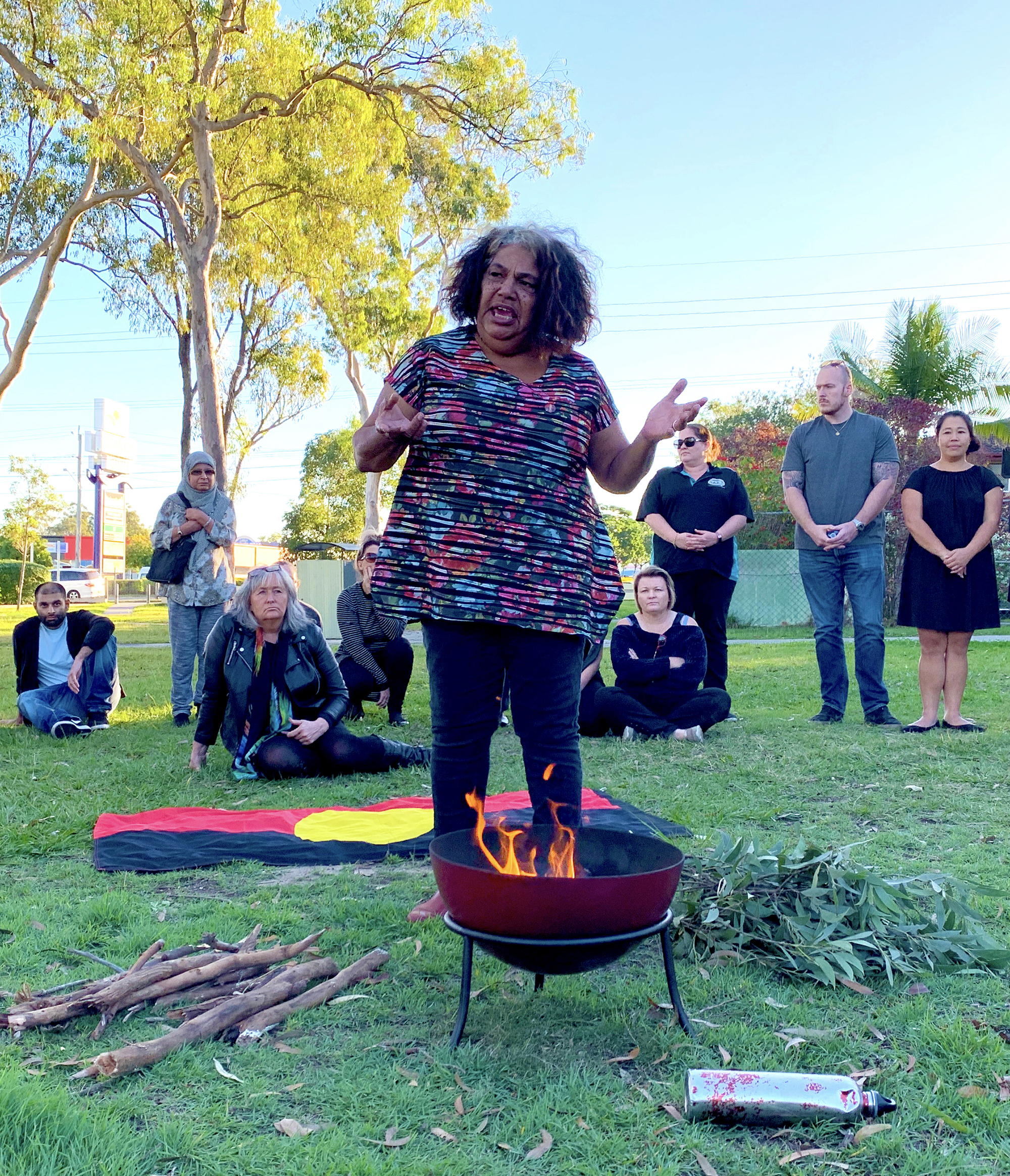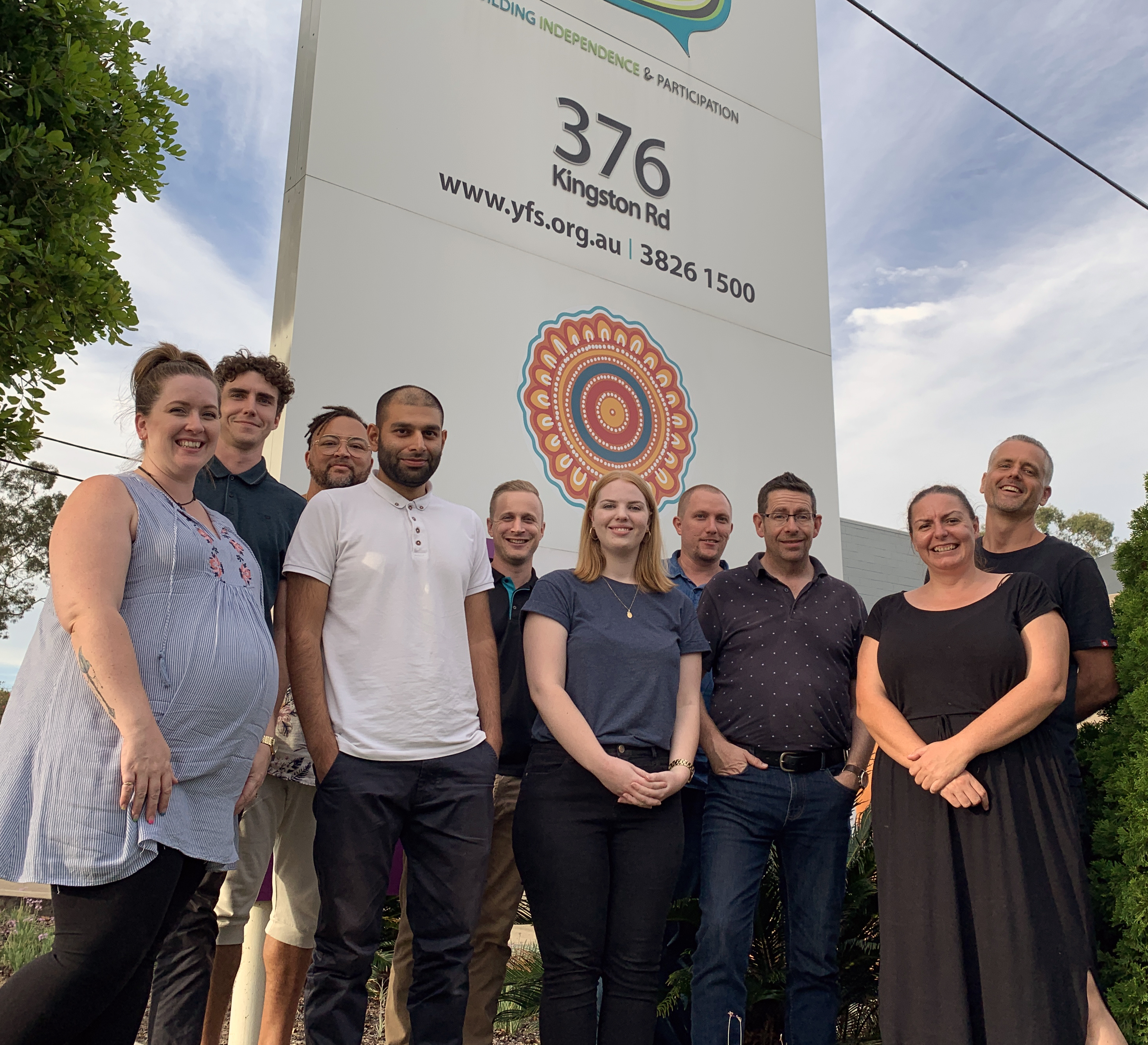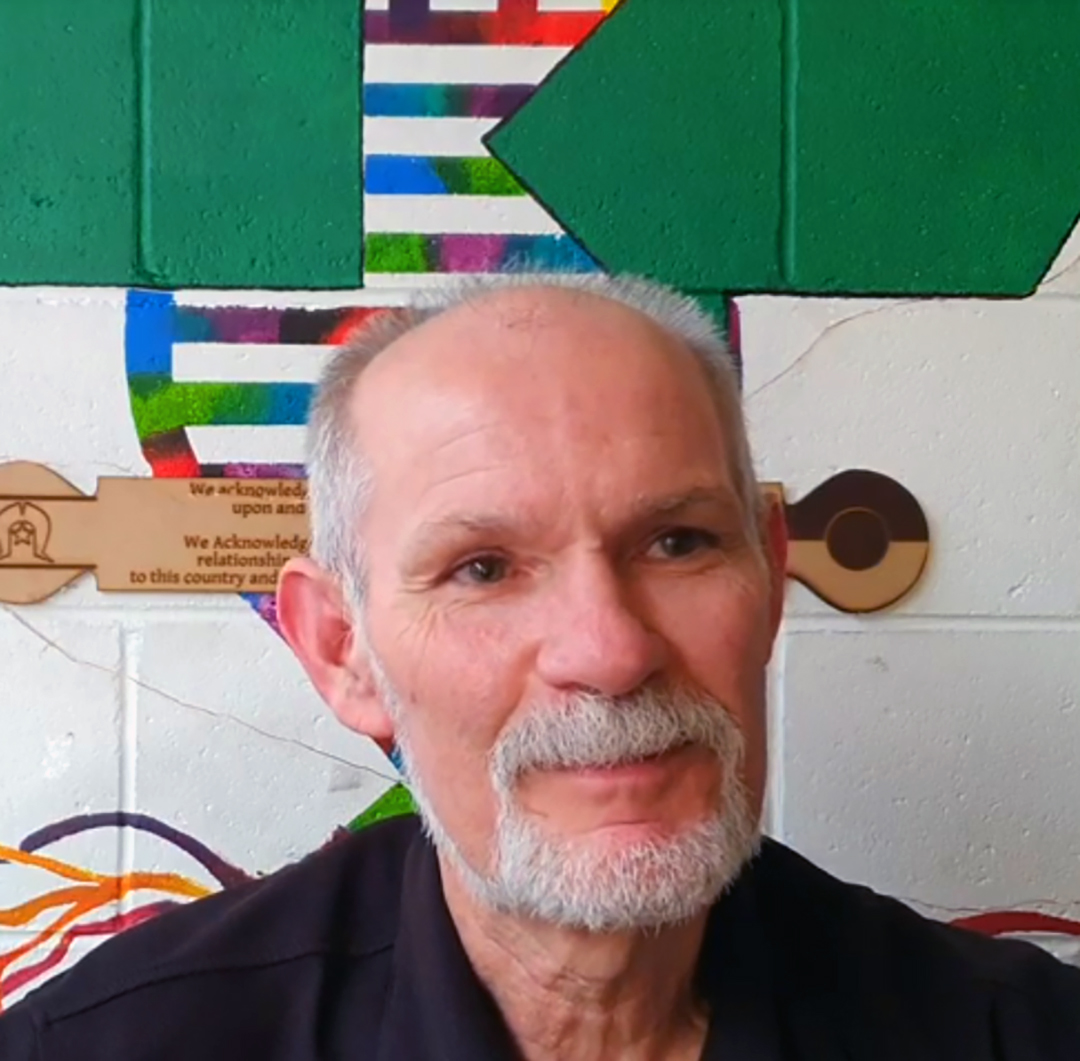Learning | Growing | Thriving
Connections
In National Reconciliation Week 2019, YFS staff gathered for a smoking ceremony led by our Reconciliation Action Plan working group.

In 2018-19, we increased our emphasis on helping people strengthen their connections with culture and their linkages with friends, family and community as well as with services like ours.
During the financial year, we examined how we work with Aboriginal and Torres Strait Islander people, communities and organisations, and identified opportunities to improve. Based on research and consultation, we developed a plan that includes strategies to better support our First Nations staff, increase our cultural competence and develop stronger links with community controlled organisations.
In 2018-19 our ParentsNext team began a co-location at the Waterford West Child and Family Centre run by the Aboriginal and Torres Strait Islander Community Health Service (ATSICHS). This has created opportunities for participants of both organisations. For example, our ParentsNext participants now link with culturally appropriate playgroups, kindies and health and support services while improving their work readiness.
Connections was a theme of the evaluation of our Step by Step family support program by researchers from Griffith University. They found that our Step by Step case managers were able to provide linked-up support addressing the range of issues each family confronted, including homelessness, mental health problems and domestic and family violence.
Thanks to a grant from the Queensland Community Foundation, we learned with our colleagues at Beaucare more about collaboration and laying the foundation for future partnering.
In June 2019, YFS stopped providing community participation programs for people with a disability (Community Connections and Social Links), and our Personal Helpers and Mentors service (PHaMs) for people with mental health issues ended. Over the course of the year we helped our clients to access the National Disability Insurance Scheme (NDIS) where possible, and to transition to other supports if they were not eligible. While we decided not to register as an NDIS provider, we are actively supporting Logan people to get the best from the new system. We were sad to farewell these clients and staff, some of whom had been with YFS for more than 20 years.
Future focus
In August 2019 our Shift youth drug and alcohol team launched a collaboration with ATSICHS, the Queensland Police Service and Youth Justice to provide an outreach service for young people at risk of detention.
In 2019-20 all YFS staff will increase their emphasis on fostering informal supports for clients, such as family, friends, neighbours and community groups, to provide long-term connections.
Learning what creates long-term outcomes for young people
In late 2018, consultant Paul Testro evaluated YFS’ Youthlink youth engagement program. Through interviews with young people, families, stakeholders and staff, and analysis of data and evidence, the evaluation identified strengths of Youthlink’s approach and opportunities for improvement.
It found that the values-led relationship base of the program appears to be a major driver of the program’s success in “walking with young people on their journey” and empowering them to address the challenges in their lives. Young people and their families were consistently very positive about Youthlink’s impact.
Youthlink staff began implementing improvements including linkages between support for young people and work with their families, a greater focus on cultural connections for Aboriginal and Torres Strait Islander young people, and increased use of data to identify trends and emerging issues.

Outcomes
Our Intensive Family Support case management team and our Functional Family Therapy – Child Welfare therapists work with families at risk of child protection intervention. They operate in very different ways, but both teams help families improve connections and family interactions. Wellbeing Domains outcome measures for both teams show positive change for families including their connections with community and family.
Across YFS all teams assess people’s connectedness on entry and exit to our services. In 2018-19, 38% of our clients increased their support networks. In 2019-20 we have changed our data analysis slightly to better distinguish between informal supports (like family and neighbours) compared with supports from organisations.
Connections
(based on a five point scale)
Family interactions
(based on a five point scale)
Meet tech-savvy volunteer Bruce
“I first heard about Substation33 probably three years ago, through an article at the local library.”
“My wife told me, ‘Go down and see what this place is about.’ She can’t shut me up about the place now.”

